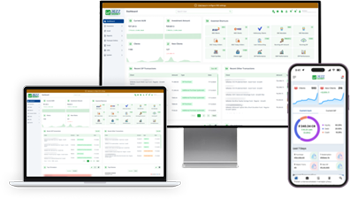Starting your home planning journey early brings numerous significant advantages that impact your finances, lifestyle, and overall confidence in achieving your dream.
1. Less Financial Burden Over Time
When you plan well in advance, you can distribute your savings over a longer period. This slow and steady growth means that you are less likely to feel financially squeezed or pressured to come up with a large amount of money quickly. In addition, it enables you to benefit from compounding on your investments, where your money grows rapidly over time.
2. Avoid Debt or Home Loans with Heavy EMIs
If you have saved enough early on, it is possible to reduce your loan requirement or even make a loan-free purchase after all. Big EMIs will eat away at your monthly budget for a long time, and that will affect your ability to save up and cover any unexpected expenses. Your plan ahead allows you either to bypass this burden or keep your loan amount within reasonable limits, thus saving more for yourself while remaining comfortable.
If you’re considering a home loan, you can use the Home Loan EMI Calculator to estimate your monthly payments accurately. This tool helps you make more informed financing decisions without overburdening your finances.
3. Peace of Mind and More Control Over Your Dream Home
Being financially prepared enables you to be more relaxed and have more choices in selecting your house. You will not have to accept a smaller amount or make decisions hastily due to financial constraints. At the same time, this peace of mind will lessen the tension that tends to arise and help you focus on what matters — finding the perfect home that fits your family's needs and aspirations.
4. Better Investment Decisions
Since you have a more extended period of possession, you may benefit from such investment opportunities as mutual funds or equities, which generally offer higher returns but are only accessible for a limited period. This flexibility allows you to grow your capital more efficiently than if you make last-minute or short-term investments.
5. Protection Against Market Fluctuations and Inflation
Early planning enables you to factor in inflation and market volatility, resulting in a more informed approach. By regularly saving and investing over a long period, you reduce the risk of investing all your money at a market peak or facing sudden price surges in the real estate market. This strategy mitigates risks and makes your home-buying journey more predictable.
6. Opportunity to Explore Financing Options
Planning gives you time to research and choose the best home loan options if needed. You can improve your credit score, compare interest rates, and understand loan terms, all of which can save you thousands of rupees over the life of a loan.
7. Financial Discipline and Goal Setting
Starting early encourages a habit of disciplined saving and budgeting, which not only helps with buying a home but also builds a strong foundation for other financial goals. This mindset supports long-term economic health and stability.
Planning your home purchase early is not just about money. It's about creating a smooth, confident, and stress-free path toward one of your biggest life goals. The sooner you start, the more options and flexibility you have to make your dream home a reality.

